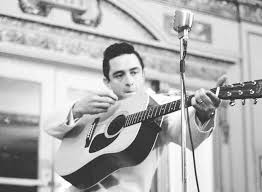I had three great academic moments in college.
The first:
I majored in English while in college, with a concentration in creative writing. My focus was upon fiction, but during my senior year, professor Hank Lewis suggested that I take a poetry class in order to hone my use of sentence structure.
So I did. Little did I know that I was signing up for an advanced poetry class, full of students who had been reading and writing poetry for the past four years in the same way that I had focused upon fiction. They were a group of writers who knew one another well, had read and in many cases memorized thousands of poems, and had been honing their poetic skills for years. As a result, I was clearly out of my league.
Thankfully, the class was taught by the late Hugh Ogden, one of the finest teachers whom I had ever met. Hugh called me “honey” on the first day of class and patted me on the back to reassure me that I would be okay, and he was right. While my classmates were writing poems filled with complex allusions, sophisticated rhyming schemes and obscure allegorical references, I kept my work simple and personal. Though it failed to impress my classmates, Hugh seemed to like it well enough, and my grades reflected his appreciation for my work.
One evening the renowned poet Ethelbert Miller came to class to offer a critique on our work. Each of us read a poem, the class critiqued the work, and then Ethelbert weighed in on the piece. As usual, my classmates’ poems were well crafted, complex pieces of artistry, full of rousing metaphor and underscored symbolism. Most of them went on for two or three pages, and everyone at the table, myself included, was impressed. My classmates had pulled out all the stops to ensure that our visitor would be greeted with poems worthy of his stature, and he was not disappointed.
Then came my little poem, unlike any other poem read that night. It was short, simple and sounded rather amateur in comparison to the rest. As I read it, I couldn’t help but feel a little foolish, like a tiny minnow swimming in an ocean full of sharks.
Here is the poem, unchanged since that night. It deals with an incident that occurred while I was student-teaching in the Berlin, CT school system in 1998.
For Matthieu
For the want of a quiet classroom
and a student who would remind me of me,
I saw red
instead of button nose and freckled cheeks,
and in a voice that sounded criminal
as it echoed off the Green Eggs and Ham bulletin board,
I told him I’d be calling his mother tonight,
to tell her about his disrespect
for our nation’s flag,
forgetting the thick, wet, grass
that covered her grave.
________________________________
I read the poem with great trepidation, and though my classmates were kind, their comments indicated that the poem needed a lot of work. They felt that that the poem was too simple and lacked depth and that the imagery was mundane and obvious.
I listened without saying a word, as I always did, and then the poem was passed to Ethelbert.
I don’t remember his exact words from that evening, but he essentially told the class three things:
1. Of all the poems he had heard that night, mine would be the one that he would remember the most, because it told a story, was honest, and demonstrated great courage in my willingness to write and read it.
2. The “simplistic imagery” used of the poem was exactly what it needed given its context. The poem resides in a first grade classroom, so there is no need for anything more complex. The urge to soar to lofty heights in poetry must be tempered by context.
3. While all the poems were excellent, mine was the most accessible to the average reader and would likely find a wider audience than any of the others. A sestina written about an albatross that seeks to examine the multiple uses of the albatross across feminist English literature is a great poem for an advanced poetry class, but in terms of finding an actual audience in the real world, my poem would be most assuredly more successful.
It was a moment that I will never forget.
Am I saying that I am a gifted poet?
Of course not. I would venture to guess that every poet in that classroom that night was more skilled than me, and despite the comments by Ethelbert, my classmates continued to thumb their noses at my work for the rest of the semester, and rightfully so. In my years of writing poems, I’ve had exactly one poem published in a rather obscure publication that earned me a grand total of $100.
But in terms of memorable academic moments, this one stands tall. For one evening, the unskilled amateur soared with the greats.








